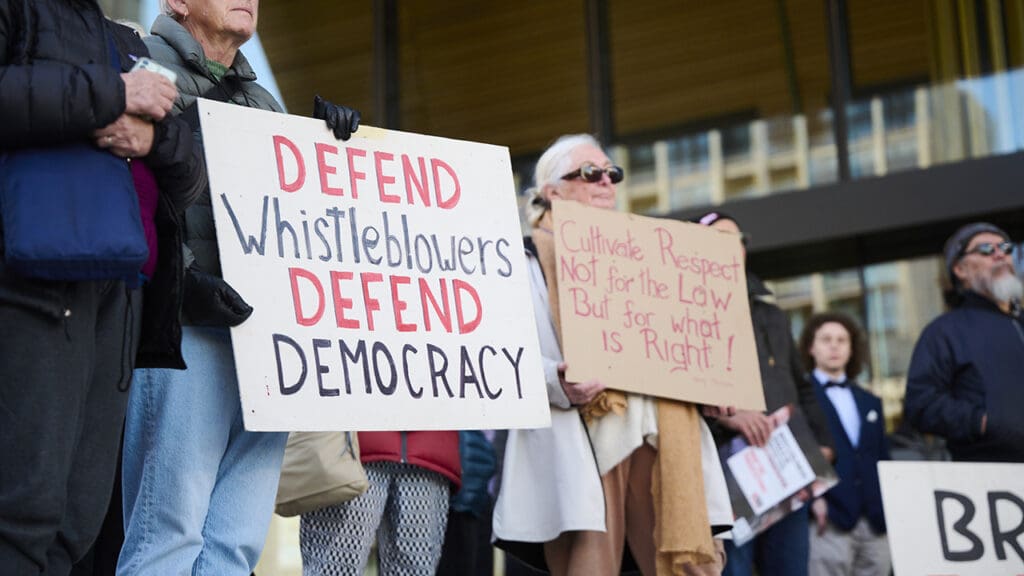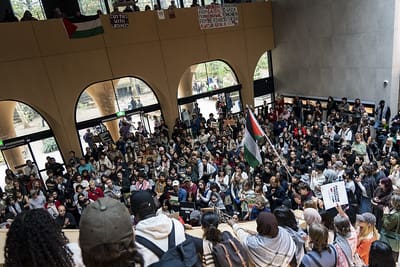New report: Rights-First Principles for Digital Platform Regulation
Social media platforms should be a place where people can come together to communicate, share and connect. Instead, misinformation is poisoning our democracy by distorting public debate, threatening peoples’ online safety, and causing real world harm to people and communities.
This is because Australia has weak laws that allow digital platforms to regulate themselves. Digital platforms profit from amplifying misinformation and hate speech. They will never fix the problem without government intervention.
In October, Senior Lawyer David Mejia-Canales was at Parliament House representing the Human Rights Law Centre, meeting with the Albanese Government and call on them to stop big tech regulating itself. Our new report Rights-First: Principles for Digital Platform Regulation shows how harmful online content and misinformation is poisoning our democracy, and lays out what we can do to stop it.
Our human rights matter online and offline. That’s why digital platforms should be regulated and that regulation must be grounded in human rights law. This will hold digital platforms accountable while striking the right balance between user safety and our rights to freedom of expression and to access information.
We are engaging with the federal government to improve its proposed legislation to curb disinformation.
Together, we will keep standing up for truth and integrity.

What issue unites Coalition, Labor, Green, teal and One Nation voters? Whistleblower protections
The Albanese Government’s persecution of whistleblowers Richard Boyle and David McBride is unjust, and the public doesn’t support it. It’s time for much-needed reform.
Read more
We’re fighting Tasmania’s parole board gag on free speech
We have filed legal proceedings on behalf of Tasmanian grandmother, Susan Neill-Fraser. Her case challenges a restrictive parole condition placed on her by the Parole Board of Tasmania which limits her ability to speak to the media.
Read more
Universities must stop restricting protests and surveilling staff and students
The Human Rights Law Centre is urging the University of Melbourne to abandon new policy changes that severely restrict protest rights and allow widespread surveillance of students and staff through the universities’ wifi network.
Read more


